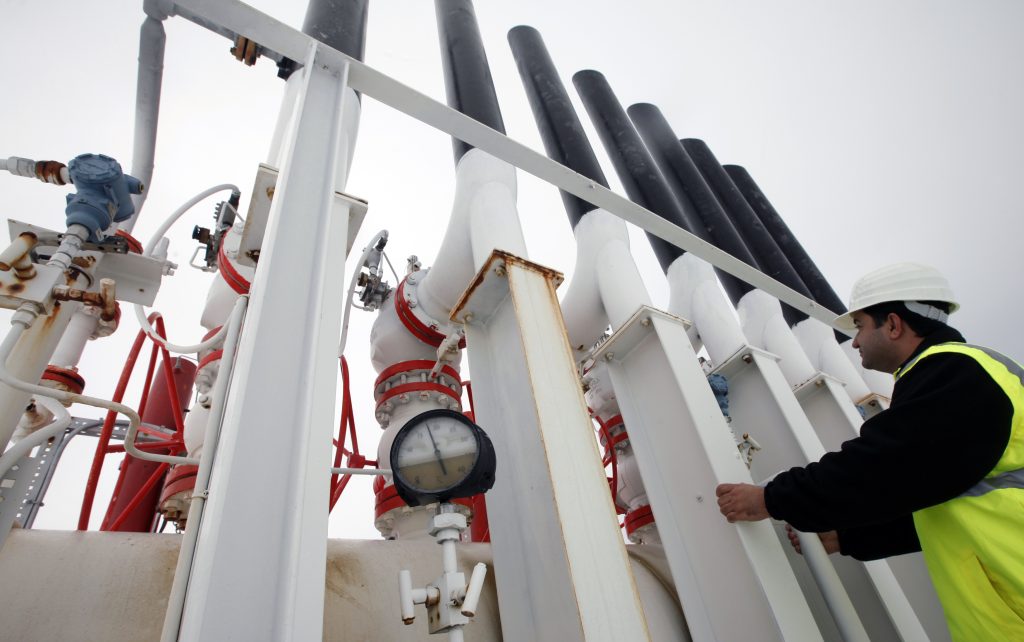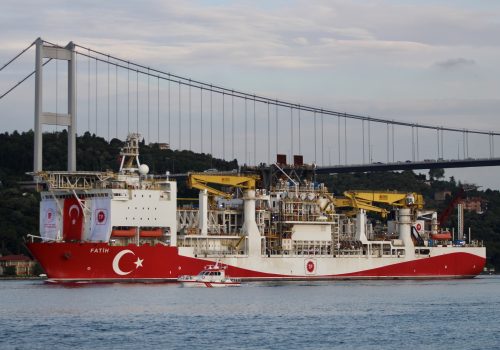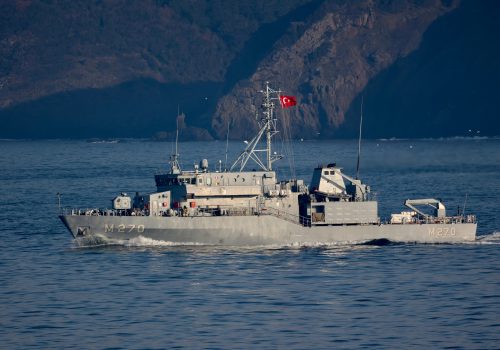Turkey has been loudly expressing its ambition to become a natural gas trade hub for several years. Yet although it has the most advanced natural gas infrastructure in Eastern Europe due to the investments made by the public-sector giant BOTAS in recent years, its failures in liberalizing the gas market have served as major obstacles in pursuit of this goal.
Russian President Vladimir Putin’s recent remarks on the establishment of a gas hub in Turkey have sparked a big public debate both in Turkey and in Europe about the essence of the proposal. Putin had made a similar statement during the construction of the TurkStream pipeline back in 2018, a second string of the project designed as a transit line to bypass Turkey, in addition to the fact that purchasers with offtake agreements from the first string had no right to re-export the gas. The main parameters of a developed gas hub are liquidity, gas-on-gas competition, and the import and export of gas molecules without any barriers. Since TurkStream did not meet these parameters, the project did not contribute much to Turkey’s goal of becoming a hub.
Even as Turkey balances its relations with the West and Ukraine on the one hand and Russia on the other, it would do well to remember that ultimately, the most important factors that determine the reliability and depth of hubs are liberal market principles and not interventions from politicians.
Natural gas should be freely imported, traded, or exported by dozens of companies. That kind of trading structure can generate a reference price without any government intervention and turn a country into a hub. Henry Hub in Louisiana, National Balance Point (NBP) in the United Kingdom, and Title Transfer Facility (TTF) in the Netherlands are good examples of this.
Turkey’s hub dream
In Turkey the gas hub concept is a rare issue that state institutions and the private sector agree on, at least in principle. Negative impacts of the pandemic on energy markets, followed by skyrocketing gas prices due to Russia’s war in Ukraine as well as a lack of investments in upstream activities, caused the hub concept to lose its former popularity in the country. However, after Turkish President Recep Tayyip Erdogan’s warm welcome of Putin’s statements, Energy Minister Fatih Dönmez stated that the proposal should be studied. A few weeks later Dönmez said that a gas hub roadmap would be completed by the end of the year and that an international conference will be held in Turkey early next year, bringing all stakeholders together.
In fact, the idea of a hub is one that has been talked about and studied for a long time by the stakeholders of the Turkish natural gas market. When I was the general secretary of PETFORM, which is one of the largest energy NGOs in Turkey, we carried out in-depth studies on the establishment of a gas hub in Turkey compared to developed Western hubs such as NBP, TTF, and Henry Hub. Between 2013 and 2020, PETFORM prepared detailed proposals and presented those to decisionmakers. Some of these proposals have been realized, and some are waiting to be realized. They can be summarized under four key themes.
1. Infrastructure
Infrastructure investments are the first and the most important issue. In 2013, Turkish daily send-out capacities of liquefied natural gas (LNG) terminals was 36 million cubic meters (mcm) per day, and its overall gas injection capacity to grid was 185 mcm/day, not allowing for the coverage of peak demand in winter. This changed dramatically after a Turkish Air Force plane downed a Russian fighter jet in November 2015. Back then, Russia was supplying almost 55 percent of Turkey’s gas demand, and Russia’s share was reaching as much as 65 percent during wintertime peaks. But the fighter jet incident led to strained political relations, and thus increased supply security concerns among Turkish decisionmakers, who started investing in diversification and flexibility—and LNG emerged as the fastest and most appropriate solution. Since then, Turkey’s LNG re-gas capacity has reached 131 mcm/day, and soon it will rise to 156 mcm/day after a new floating gas terminal in the Gulf of Saros is commissioned.
With ongoing underground storage investments (Tuz Gölü and Silivri), Turkey’s total withdrawal capacity will increase by around 150 mcm/day in 2023. In the meantime 10 mcm/day will start flowing in from the Sakarya Gas Field in March 2023, a volume that is expected to reach 40 mcm/day in 2025-2026. When we also count pipelines in, Turkey’s gas import capacity will exceed 500 mcm/day soon—unmatched by any other country in Southeastern Europe.
Considering all these investments, as of 2023, Turkey will have enough flexibility to supply gas to Southeastern European countries—even in the coldest days of the winter—where a lack of infrastructure is the main problem. For this, signing interconnection agreements with neighboring countries and opening key infrastructure such as LNG terminals and underground storage to third parties and enabling their use based on liberal market principles may boost cross-border gas trade and empower Turkey’s role as a gas hub.
2. Regulations
Turkey’s Energy Market Regulatory Authority has been proactive in completing the legislative processes that could help the country emerge as a gas hub. These include measures ranging from spot imports to the establishment of continuous gas trading platforms, and from simplifying import licensing processes to the establishment of spot and futures markets. Further steps might be taken to decrease the market share of BOTAS in imports and domestic sales based on the gas market law as well as the implementation of regulations on opening LNG terminals to third parties. These measures will attract more traders to sell their gas as well as consumers to manage their risk via various contracts and financial tools, eventually increasing the depth and liquidity of a Turkish gas hub.
3. Independence
The fact that BOTAS is not only the largest importer and wholesaler of gas in Turkey, but also is the sole transmission system operator, is problematic. Just like developed hubs, Turkey needs the transmission system operator to be an independent company. Ownership unbundling would be the most appropriate structure, serving all parties under the commercial confidentiality conditions. Thus, the transmission system operator needs to be separated from the existing structure of BOTAS and become independent.
4. Commercial woes
Although the natural gas market law that came into force in 2001 sets clear targets for the liberalization of the market, very few of them have been achieved so far. More than 90 percent of the imports and domestic sales of Turkey are carried out by BOTAS.
Mass subsidization—which is carried out from time to time for various purposes such as supporting exports, lowering electricity prices, or protecting residential consumers—completely disrupts the price formation in the market. The de-facto closure of LNG terminals to third parties, the closure of Greece and Bulgaria interconnections for exports, and BOTAS’s dominant role restrict liquidity.
This in turn reduces transactions and prevents the formation of a reference price—the biggest obstacle to Turkey becoming a hub. Once trade barriers are eliminated, a long-term gas reference price could be formed and Turkey would rapidly move on its way to becoming a hub.
Putin’s proposal
Putin said Russia would consider building another gas pipeline and “creating a gas hub in Turkey for sales to third countries, especially, of course, the European ones, if they are interested in this.” I don’t think that he meant a gas hub similar to TTF, NBP, or Henry Hub where gas-on-gas competition and the free import and export of gas are ensured.
It is highly probable that after the South Stream project—meant to take Russian gas to Bulgaria and Serbia through the Black Sea—was canceled in 2014 due to pressure from the European Commission, the TurkStream Project came to the fore. TurkStream was built as a pipeline that bypassed Turkey and directly sold Gazprom’s gas to European consumers. Turkey would do well to remember that Putin’s motivations might once again lie in revitalizing the legacy of the South Stream project—and not in developing Turkey into a hub.
In other words, while Turkish decisionmakers aim to establish a fully fledged hub, Russians might just be looking for a new route to Europe. Yet even if Russia’s perspective aligned with Turkey’s, challenges tied to accessing the needed material, technology, and financial resources could limit the supply of Russian gas to a Turkish gas hub in the short term.
Still, that pales in comparison to the biggest consideration that Turkish policymakers must keep in mind: They need to remember that liquid and reliable energy hubs are established by the market. The role of politicians here is simply to level the playing field.
Eser Özdil is a nonresident fellow with the Atlantic Council IN TURKEY. He is the founder of GLOCAL Group Consulting, Investment, and Trade, where he advises energy companies on issues that include public policy, government relations, and commercial diplomacy. Follow him on Twitter @eserozdil.
Further reading
Wed, Dec 7, 2022
Turkey can become an energy hub—but not by going all-in on Russian gas
TURKEYSource By Yevgeniya Gaber
Turkey has the ambition and potential to play a key role in the regional energy landscape but Russian gas hampers its effort to become a hub.
Thu, Sep 1, 2022
To re-engage in the Black Sea, the US must look to Turkey
TURKEYSource By Arnold C. Dupuy
Russia’s invasion of Ukraine presents an opportunity for the United States to re-engage in the Black Sea region. To do so, it will need to work with partners and allies, such as Turkey.
Thu, May 12, 2022
Energy security is critical to NATO’s Black Sea future
TURKEYSource By Arnold C. Dupuy
Russia's invasion of Ukraine demonstrates the fragility of energy security in the Black Sea region, which NATO should address.
Image: A worker checks the valve gears in a natural gas control centre of Turkey's Petroleum and Pipeline Corporation, 35 km (22 miles) west of Ankara, February 14, 2012. REUTERS/Umit Bektas (TURKEY - Tags: BUSINESS ENERGY)



